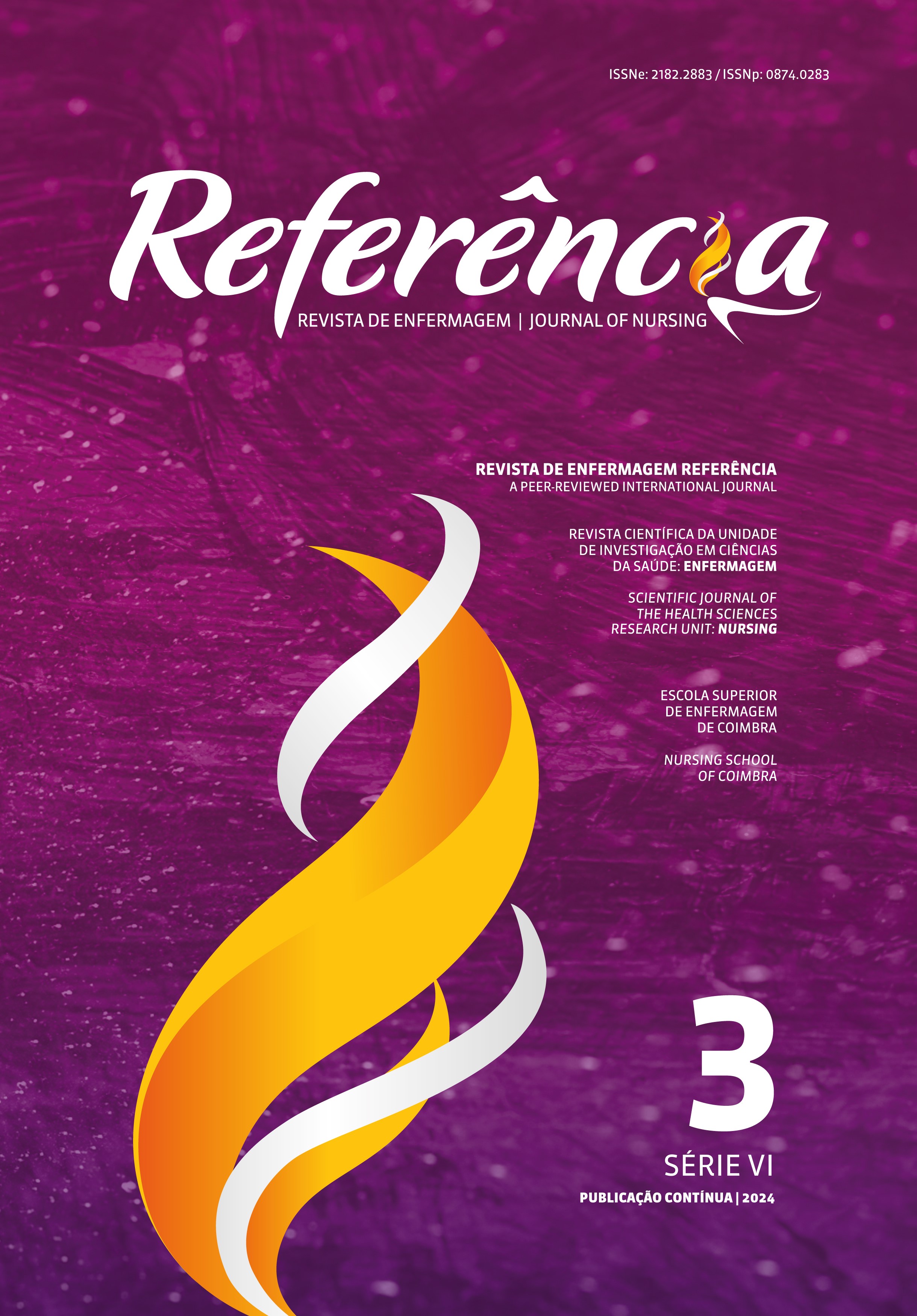Narrativas de utentes na atenção psicossocial analisadas sob a ótica de género
DOI:
https://doi.org/10.12707/RVI24.35.34984Palavras-chave:
saúde mental, serviços de saúde mental, papel de género, estudos de género, transtornos mentaisResumo
Enquadramento: O género está relacionado com o sofrimento psíquico. A pressão social sobre
a mulher para cumprir o papel de mãe, cuidadora e esposa, e do homem para ser chefe de família, é um determinante no processo saúde/doença.
Objetivos: Analisar as narrativas dos usuários de um Centro de Atenção Psicossocial sob a ótica da categoria género.
Metodologia: Trata-se de um estudo qualitativo, realizado com 17 usuários de um centro de atenção psicossocial do interior do nordeste brasileiro. Foram realizadas entrevistas, e os dados transcritos foram interpretados através da análise de conteúdo.
Resultados: Emergiram duas categorias - Perceção sobre os papéis de gênero; Relações familiares, Trabalho e Sofrimento psíquico. Estes apontam para uma visão enraizada sobre os papéis masculinos e femininos, a mulher como cuidadora da família, e o trabalho, visto como algo que potencializa a saúde mental ou o sofrimento.
Conclusão: Os papéis sociais de género apresentam relação com o sofrimento mental, uma vez que, são reforçados pelos indivíduos, família e instituições sociais.
Downloads
Referências
Alibudbud, R. (2022). Gender in mental health: Gender-based violence, suffering, recovery, and the greater responsibility of society during the COVID-19 pandemic. Asian Journal of Psychiatry, 67, 102953. https://doi.org/10.1016/j.ajp.2021.102953
Alisherovna, T. M. (2023). Problems of psychological despotism of gender equality in problem families. International Journal of Formal Education, 2(3), 146–152. http://journals.academiczone.net/index.php/ijfe/article/view/662
Assucena, B., & Colonese, C. (2023). Discussing gender and health in the training of residents of a university hospital. Saúde em Debate, 46, 239–250. https://doi.org/10.1590/0103-11042022e621
Barbosa, C. G., Meira, P. R., Nery, J. S., & Gondim, B. B. (2020). Perfil epidemiológico dos usuários de um Centro de Atenção Psicossocial. SMAD: Revista Eletrônica Saúde Mental Álcool e Drogas, 16(1), 1-8. https://doi.org/10.11606/issn.1806-6976.smad.2020.156687
Bardin, L. (2009). Análise de conteúdo. Edições 70.
Batista, K. (2023). Transtornos mentais comuns e a rede de atenção psicossocial do sistema único de saúde (raps/sus): Uma revisão integrativa. Revista Sergipana de Saúde Pública, 2(2), 8–24. https://revistasergipanadesaudepublica.org/index.php/rssp/article/view/55
Caponi, S., Sevilla, J. M., & Amaral, L. H. (2023). El sesgo de género en el discurso y en las intervenciones psiquiátricas. Revista Estudos Feministas, 31(1), e93055. https://doi.org/10.1590/1806-9584-2023v31n193055
Chagas, G. D., Peranzoni, V. C., Brutti, T. A., & Oliveira, V. M. (2023). A reforma psiquiátrica brasileira no contexto sociocultural. Revista Ilustração, 4(1), 3–11. https://doi.org/10.46550/ilustracao.v4i1.140
Coletta, C., & Berlato, H. (2020). As vivências do trabalho e suas suscetibilidades: A patologia como um fim. Revista Eletrônica de Ciência Administrativa, 19(1), 61–82. https://doi.org/10.21529/recadm.2020003
Ferreira, T. P., Sampaio, J., Oliveira, I. L., & Gomes, L. B. (2019). The family in mental health care: Challenges for the production of lives. Saúde em Debate, 43(121), 441–449. https://doi.org/10.1590/0103-1104201912112
Galvão, A. L., Oliveira, E., Germani, A. C., & Luiz, O. C. (2021). Structural determinants of health, race, gender, and social class: A scope review. Saúde e Sociedade, 30(2), e200743. https://doi.org/10.1590/s0104-12902021200743
Lakatos, E. M., & Marconi, M. A. (2017). Fundamentos de metodologia científica. Atlas.
Lima, F. A., Cabral, M. P., Gussi, A. F., & Araújo, C. E. (2023). Digressions of the brazilian psychiatric reform in the conformation of the new mental health policy. Physis: Revista de Saúde Coletiva, 33, e33078. https://doi.org/10.1590/s0103-7331202333078
Mendes, E. V. (2018). As redes de atenção à saúde. Ciência Saúde Coletiva, 23(6), 1639-1650. https://doi.org/10.1590/1413-81232018236.04822018
Miranda, S., Oliveira, J. L., Sampaio, C., & Neto, J. A. (2021). Mapping the working conditions of quilombola men and intersections between informality and mental health. Interface, 25, e200478. https://doi.org/10.1590/interface.200478
Rosar, L., & Corso, E. R. (2023). Retalhos de vida: Memórias e vivências de gênero e geração entre cuidadoras e cuidadores de idosos(as) com alzheimer. Clio, 41(1), 58–79. https://doi.org/10.22264/clio.issn2525-5649.2023.41.1.07
Scott, J. (1989). Gender: a useful category of historical analyses. Gender and the politics of history. New York, Columbia University Press.
Scott, J. W., & Urso, G. S. (2021). Gênero: Em perspectiva multidisciplinar. Albuquerque: Revista de História, 13(26), 177–186. https://doi.org/10.46401/ardh.2021.v13.14704
Silva, R. P., & Melo, E. A. (2021). Masculinities and mental distress: From personal care to fight against male sexism? Ciência Saúde Coletiva, 26(10), 4613–4622. https://doi.org/10.1590/1413-812320212610.10612021
Valenzuela-Somogyi, M. (2023). Narrativas sobre las relaciones de pareja en hombres chilenos heterosexuales: Entre el machismo y la igualdad. Revista Austral de Ciencias Sociales, 44, 93–106. https://doi.org/10.4206/rev.austral.cienc.soc.2023.n44-05
World Health Organization (2022). World mental health report: transforming mental health for all. Geneva. https://iris.who.int/bitstream/handle/10665/356119/9789240049338-eng.pdf?sequence=1&isAllowed=y

















